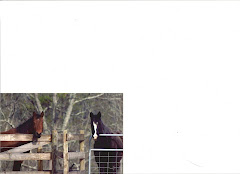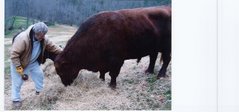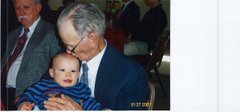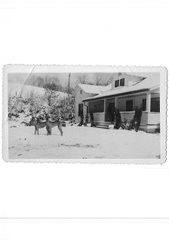Michael was given his grandfather’s radio a few years ago. It is a tall floor model with a beautiful wooden case and a phonograph that slides out below the radio. It is so powerful that you can hear BBC broadcasting from London. In the mountains of north Alabama, Michael’s grandparents and family would sit in the living room/master bedroom/all purpose room next to the kitchen listening to the world beyond. A collection of records from Michael’s dad contains two treasures... Clarence Jordan reading his Cotton Patch Gospels and Martin Luther King preaching at the Washington March. I listen to those two voices from the south and am struck by the power of their preaching and the changes that have come because of their living with us.These two men were alike in many ways. Both were very well educated, seminary trained and a part of a culture that denied the most basic human rights to a majority of the south’s people.
Clarence Jordan, a Greek scholar, a part of the Southern Baptist church, took the gospel seriously and heard his call. He established a farm in southwest Georgia near Americus (and Plains) that included both races as owner/farmers living and working together. They were bombed, boycotted and ostracized by the local community. Jordan wrote the Cotton Patch Gospels to help support the farm and spoke at seminaries, churches and other venues to promote the cause of gospel justice for all. Habitat for Humanity came into being at the farm because of Jordan’s prophetic life.
Martin Luther King was a part of the elite educated upper class. His father was an influential preacher and as a PK, Martin saw the church at its best and its worst. He became a preacher himself and one with great charisma and power. The African American preaching tradition is not a static experience confined to Sunday morning pews. It lifts you up, gets you to shouting and moves you on out. King knew his people, black and white, and he knew how to use his preaching gift to inspire change. His earlier ministry was devoted to the cause of racial equality but at the time of his murder, he had begun to work for the poor and call for peace.
Neither of these men was perfect. The after death practice of erasing a persons flawed humanity is not confined to your alcoholic Uncle Joe... "Poor soul. He was so generous and kind. (And drunk ninety percent of the time)." We do them and ourselves a disservice by pretending they were superhuman beings. It removes the possibility of our following in their footsteps. These two men were men who heard and heeded a call that also is extended to us. If they could do it, so can we.
Prophets are notoriously difficult to live with. They are always out on a mission, never home to unstop the drain, don’t make it to the PTA programs and miss the recitals and ball games. The families of prophets have a tough row to hoe without any of the fruits of the labor.
They often carry a burden not of their own choosing, a way of life that is as dangerous and public as the prophet they live with. I wonder sometimes about Jeremiah’s wife, and Isaiah’s family, and John the Baptist’s mother and father. When one hears a prophetic call, those who love you best lose you. Jesus did say we must be prepared to give up our families. Prophets often do.
I am grateful for these two prophets in my time. They came from my people in the south, black and white. Their lives changed the course of history and honored the One they worshiped. This Sunday I will play the records and listen to the voices of these two human beings who did great things for their God. I will remember that even though I am not called to be a prophet, I am called to live as one who has been redeemed. I can be the Face of God for those in my community who are the least of these. And in the living of my call, I can hear the voices of those who have gone before saying, "Good for you, girl. Now get on outta here and get on with it. Remember you are God’s girl and live up to your family name."
Subscribe to:
Post Comments (Atom)









No comments:
Post a Comment